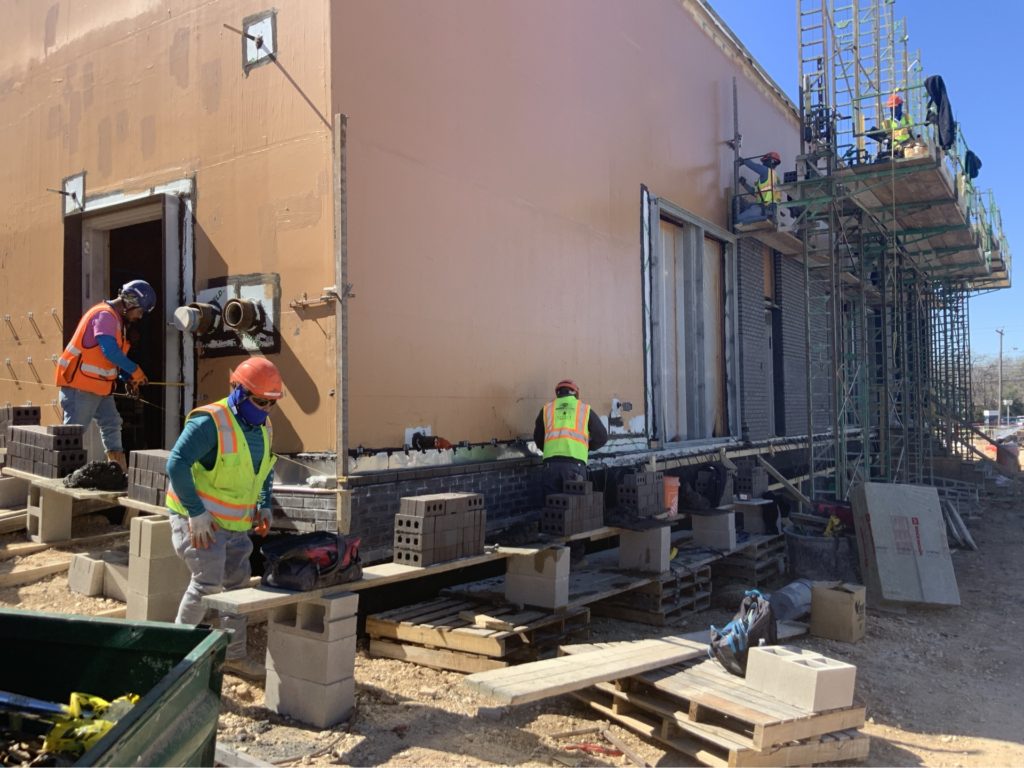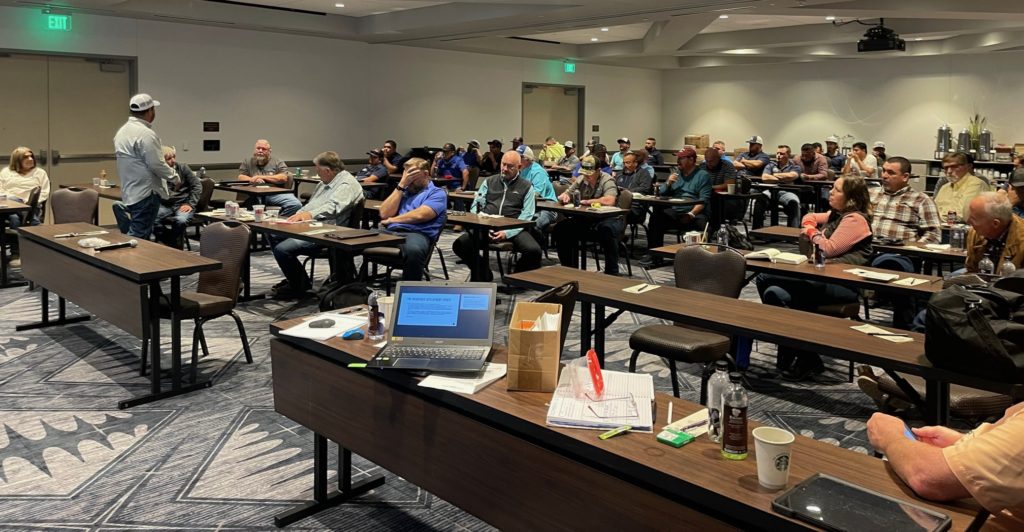Motivating Employees
Words: Kent Bounds
Words and Photos: Kent Bounds, President at Brazos Masonry
We, in 2022, are living in a different time. A few short years ago, the number of individuals in the job market outweighed the number of open job positions. Motivating meant that your people still had the job from one week to the next. In today’s economic climate, that is not the case. It is hard to find any good from the pandemic, but I believe it has made us realize the importance of engaging with our employees. We understand the pandemic years of 2020 and 2021 were disastrous for every worker and business unless you were into manufacturing of hand sanitizer, masks, and plexiglass. COVID left the economy in shambles, and it left workers shattered, depressed, and unmotivated. Where perhaps you were a tight, cohesive group at one time to where you see everyone occasionally through only a zoom meeting. The pressures of remote work, sickness, and uncertainty around only added to the chaos of managing people in the workplace. Yet, while it may sound even today like we are on the brink of an economic collapse, the glass is still half full. Winston Churchill said. “Never let a good crisis go to waste.”So, in short, the companies who choose to change the way they treat their employees during these uncertain times will, without a doubt, see their efforts pay dividends down the road and for many years to come.

The most significant factor to understand as we navigate the road of motivating employees is to understand how important your relationship is with each employee. That relationship will allow you to cultivate motivation. Think about it, the most important emotion an employee brings to work is motivation. A motivated workforce is a holy grail that every organization aspires to have. That is awesome, but I find that we as leaders and managers have to be careful not to zap that emotion from the workplace. Our attitude is everything. As leaders, our attitude, seen or just perceived, has a tremendous effect on your team and your coworkers. We must understand that our attitude may determine your company’s productivity, the ability to make wise decisions, find win-win solutions, and to get back up and do it again tomorrow despite setbacks. For an example, if you come in this morning with a smile and engage your people immediately, you are sure to have a different effect than if you come in looking worried or disturbed and scurry quietly to your office with your head down. You have the power to listen with empathy, to encourage, to guide, to appreciate, and, yes, to inspire. From this solid foundation, motivation can and will take place.
I want to briefly share what we have done as a team at Brazos Masonry to help raise the level of motivation. I know there are more, and I know as a young leader, I am always learning. I believe it first starts with heartfelt gratitude. Remember, it’s not about you!!! We must be truly thankful for our employees and what they do for us daily. Don’t think that they owe you, but it is the other way around. We, as owners/management, started visiting a jobsite every other week several years back. When we visit the jobsite we don’t just look for problems, but we bring a large grill and all the fixings for hamburgers. We set up and have a cookout for our people. We all talk to our people, we pass out swag and door prizes, but most of all, we each shake everybody’s hand and say THANK YOU. It is amazing how far this gesture goes to our people in the field. Yes, it is time-consuming and hot out on jobsites, but it is worth every minute of the time spent. This opportunity allows us to profess our true gratitude to people who get it done. This gives us the power to lift people up, build their confidence, brighten their day, connect them to the purpose, engage them as part of a team, and in the end, motivation is achieved.
What else leads to motivation? What about rewarding your people? Acknowledging your people for a job well done. We at Brazos Masonry have a quarterly profit-sharing program with our in-house management people. We don’t simply hand out their checks, but we make this a bid deal. We cater in a big lunch. We, as owners, put together a power point and give updates on the company. We recognize each department and their accomplishments. We, as owners, from our hearts, each say a few words thanking and acknowledging everyone’s hard work. We don’t stop there. We have two company-wide meetings with all our Field Superintendents and Office Staff. We use this time for team building, learning, and for more recognition. We have a large fall company picnic each year. This is another way to say thank you to all. We give surprise days off for different employees who put in long hours. We give personal thank you notes, gift cards, and take others out for lunch. We have a company newsletter that goes out monthly with a section that honors our employee’s tenure. By simply letting your people be truly rewarded for a job well done, it cultivates and breeds motivation.

Learning how to motivate employees is easier in theory than in reality, mainly because knowledge is useless without application. With that being said, we must understand that they are ways to kill an employee’s motivation. From experience, we must know micromanaging is not the answer. Micromanagement is a form of mistrust. The more you control, the safer you feel. However, the greater control you exert, the more your employees feel mistrusted, mistreated, and undervalued. When your employees feel like this, their motivation drops, and you feel the consequences. The lack of structure will destroy motivation. Effective, efficient, and motivated employees are created from solid structures and systems. The purpose of such systems is to create a work environment that builds motivation and promotes productivity. Unclear expectations are another pitfall to motivation. It is important to note that we all carry expectations on how things should work. Where I struggle is in how to effectively communicate those expectations to the employee. We get caught expecting our people to be at a high level without ever sharing what that level is. Motivated employees are those who know where the target is and know they can achieve that goal.
To genuinely move your company forward, systems need to be in place to reach goals and expectations. Motivation is a stepping stone to more productivity and maximizing your company’s growth, profitability, and longevity. Therefore, as leaders, we need to always communicate our intentions with clarity to show that gratitude, appreciation, and the reward of doing a job well done. Action must take place from the top down. Your actions will speak volumes to your leadership and how employees are motivated. And last, be sure to stay consistent in any measures you take. Motivation is something like Thomas Edison said once; “Opportunity is missed by most people because it is dressed in overalls and looks like work.”